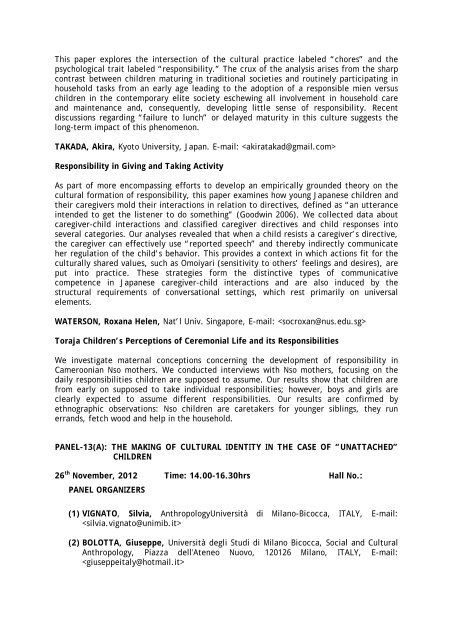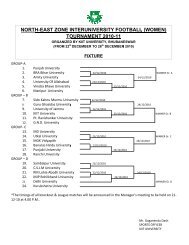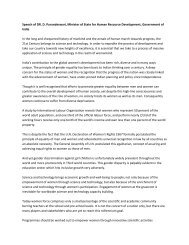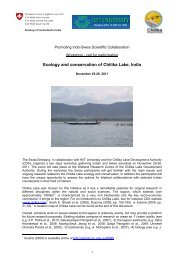PANEL ORGAN - KIIT University
PANEL ORGAN - KIIT University
PANEL ORGAN - KIIT University
Create successful ePaper yourself
Turn your PDF publications into a flip-book with our unique Google optimized e-Paper software.
This paper explores the intersection of the cultural practice labeled “chores” and the<br />
psychological trait labeled “responsibility.” The crux of the analysis arises from the sharp<br />
contrast between children maturing in traditional societies and routinely participating in<br />
household tasks from an early age leading to the adoption of a responsible mien versus<br />
children in the contemporary elite society eschewing all involvement in household care<br />
and maintenance and, consequently, developing little sense of responsibility. Recent<br />
discussions regarding “failure to lunch” or delayed maturity in this culture suggests the<br />
long-term impact of this phenomenon.<br />
TAKADA, Akira, Kyoto <strong>University</strong>, Japan. E-mail: <br />
Responsibility in Giving and Taking Activity<br />
As part of more encompassing efforts to develop an empirically grounded theory on the<br />
cultural formation of responsibility, this paper examines how young Japanese children and<br />
their caregivers mold their interactions in relation to directives, defined as “an utterance<br />
intended to get the listener to do something” (Goodwin 2006). We collected data about<br />
caregiver-child interactions and classified caregiver directives and child responses into<br />
several categories. Our analyses revealed that when a child resists a caregiver’s directive,<br />
the caregiver can effectively use “reported speech” and thereby indirectly communicate<br />
her regulation of the child’s behavior. This provides a context in which actions fit for the<br />
culturally shared values, such as Omoiyari (sensitivity to others’ feelings and desires), are<br />
put into practice. These strategies form the distinctive types of communicative<br />
competence in Japanese caregiver-child interactions and are also induced by the<br />
structural requirements of conversational settings, which rest primarily on universal<br />
elements.<br />
WATERSON, Roxana Helen, Nat’l Univ. Singapore, E-mail: <br />
Toraja Children’s Perceptions of Ceremonial Life and its Responsibilities<br />
We investigate maternal conceptions concerning the development of responsibility in<br />
Cameroonian Nso mothers. We conducted interviews with Nso mothers, focusing on the<br />
daily responsibilities children are supposed to assume. Our results show that children are<br />
from early on supposed to take individual responsibilities; however, boys and girls are<br />
clearly expected to assume different responsibilities. Our results are confirmed by<br />
ethnographic observations: Nso children are caretakers for younger siblings, they run<br />
errands, fetch wood and help in the household.<br />
<strong>PANEL</strong>-13(A): THE MAKING OF CULTURAL IDENTITY IN THE CASE OF “UNATTACHED”<br />
CHILDREN<br />
26 th November, 2012 Time: 14.00-16.30hrs Hall No.:<br />
<strong>PANEL</strong> <strong>ORGAN</strong>IZERS<br />
(1) VIGNATO, Silvia, AnthropologyUniversità di Milano-Bicocca, ITALY, E-mail:<br />
<br />
(2) BOLOTTA, Giuseppe, Università degli Studi di Milano Bicocca, Social and Cultural<br />
Anthropology, Piazza dell'Ateneo Nuovo, 120126 Milano, ITALY, E-mail:<br />
















